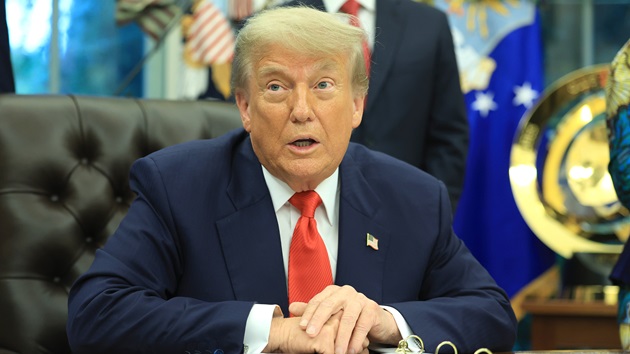
(WASHINGTON) — Some Trump supporters living in rural areas say they have concerns about the impact of President Donald Trump’s tax and policy megabill, which he signed into law on Friday. The bill’s potential health care impacts, both personally and on their communities, were top of mind for some, while others anticipated a positive impact on business but were wary of the bill’s price tag.
ABC News spoke with these people after the Senate passed the bill on July 1 but before the House did two days later.
Provisions in the bill enacting stricter eligibility requirements for Medicaid could impact finances for rural hospitals, which tend to rely more on Medicaid funding than urban hospitals and often already operate on tight margins.
The American Hospital Association called the potential impact on rural hospitals and patients “devastating.” In the leadup to the bill’s passage, Democratic senators working with researchers from the University of North Carolina Chapel Hill compiled a list of 338 rural hospitals that could be at risk of “financial distress,” “service reductions” or closure.
Some Republican senators, including Sen. Bill Cassidy, R-La., a physician, and Sen. Susan Collins, R-Maine, had expressed concerns about the bill impacting health care providers in their states.
In response to these worries, Senate Republicans included a measure setting aside $50 billion over five years in the bill to support these rural hospitals, but advocates and experts say it may not be enough to prevent hospital shutdowns and loss of care. The National Rural Health Association said in a statement that the fund would “fall short of” offsetting the impact of other provisions.
James, a 62-year-old man who lives in a semi-rural area in North Carolina, is on Medicaid and gets Supplemental Nutrition Assistance Program (SNAP) benefits. He said the bill would cut around $300 worth of those benefits for him per month.
“It’s going to be hard to pay the rent and everything else,” he said. He added that he didn’t have family that could help support him, now that his brother has died and his mother was in a nursing home.
Identifying as an independent, James said he did not vote in 2024 but had liked Trump as a candidate more than Democratic nominee Kamala Harris.
“I thought Trump was the lesser of two evils,” he said. “But I was wrong … If you want to make the poor people poorer, he’s doing real good.”
Insurance agent Bryan Shaver, who lives in Hattiesburg, Mississippi, voted for Trump in 2024.
Shaver, 62, said he was not worried about the Medicaid provisions in the bill affecting his clients. “Because they’re elderly and they make very little money,” he was confident they would meet the new criteria.
However, Shaver said he was “absolutely worried” that the Medicaid cuts could affect rural hospitals in Mississippi, some of which he had worked with in the past.
“It was extremely difficult for them to take care of who they needed to take care of … it’s very difficult for them to survive in Mississippi,” Shaver said.
He said hospitals’ financial struggles sometimes reduced access to care for the people living around them.
“A lot of the hospitals here can’t afford [to provide care for] maternity,” Shaver said. “For example, a hospital up in Batesville, Mississippi. [Patients] have to drive to Memphis to deliver a baby, and that’s kind of ridiculous.”
Shaver said he would wait to see how the provisions in the bill would affect voters. If there was a negative impact, he said he hoped Republican lawmakers would “correct it” or otherwise “get booted out.”
Stephen Caraway, who also voted for Trump, lives in a rural area around 70 miles east of Cincinnati. He said he anticipated a positive effect for himself and his community from the bill. Caraway was appointed to the state’s Elections Commission by Ohio Governor Mike Dewine in 2023 and will serve until 2027.
“There are service jobs, a lot of restaurant positions in my part of Ohio, and I absolutely think that no tax on tips or overtime would be great for the middle class and for those employees,” Caraway said. He said he would personally benefit from some of the tax cuts the bill extended.
To Caraway, the tightened eligibility requirements for Medicaid seemed reasonable, and he did not buy into worries that the bill would take millions of people off the benefits and potentially hurt rural hospitals like the one he lives near.
Caraway’s one concern is the effect the bill would have on U.S. debt. The Congressional Budget Office estimates that it would add $3.4 trillion to the deficit over a decade.
“Regardless of what party was in control, I would tell you that the federal government needs an overhaul, and has needed it for a long time. The only thing that would give me pause is some of those CBO projections,” Caraway said. “But I believe that those projections can just as easily be incorrect as they can be correct. And I’m going to trust my national leaders to do what is right and be fiscally responsible.”
Copyright © 2025, ABC Audio. All rights reserved.




